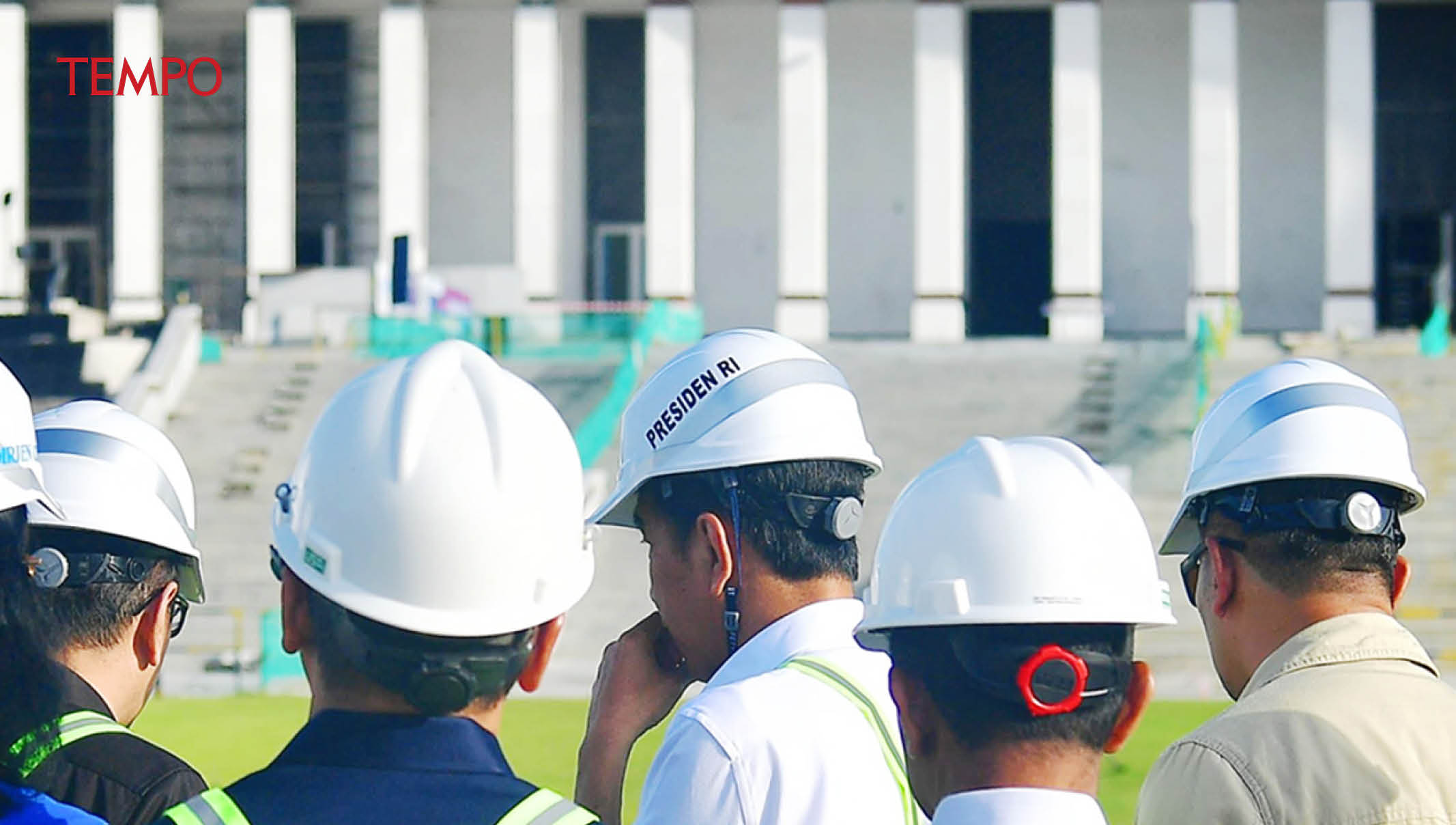Time to Cancel the New Capital
The government must halt the construction of the Nusantara Capital City. It could become a ghost town in the future.
Tempo
June 10, 2024

THE resignations of Bambang Susantono and Donny Rahajoe as Head and Deputy Head of the Nusantara Capital City (IKN) Authority have lifted the veil on the chaos surrounding the development of the state capital. The revelations about this disarray are proof of the shambolic planning and construction in the region. This magazine has criticized the IKN project from the outset because of the large number of problems behind it.
Most fundamentally, there was hardly any public participation in the policy to relocate the capital. Since it was proclaimed by President Joko Widodo in 2019, the government studies into the plan have never been published. The government has given no satisfactory explanation as to why North Penajam Paser in East Kalimantan was selected as the location for the new capital, apart from its location in the middle of the map of Indonesia.
The unsuitability of the project can be seen from, for example, the geological aspect. The coal that lies under the surface of the prospective capital means that it will be difficult to find supplies of groundwater, and also that the region is prone to fires. Last year, a number of illegal coal mines around the IKN were observed by the Meteorology, Climatology and Geophysics Agency as hotspots. Some areas of the IKN region have the potential to emit shallow gas.
Moreover, the law that become the legal umbrella for the construction of the IKN was drawn up very quickly and in secret. There was some public consultation, like the one held at the Mulawarman University in Samarinda, but it was very secretive. This consultation was carried out simply as a rubber stamp, signifying that the formal process had gone ahead. There was no sign of any wish to gather comments from the public.
Abandoning Jakarta, with all its problems, is irresponsible. Instead of seeking solutions to Jakarta’s woes—including traffic congestion and flooding—Jokowi sought out a new capital simply to leave behind a legacy at the end of his administration.
The development has been rushed. The IKN project was established in 2022 before the Covid-19 pandemic was over. Instead of conserving budget funds to cover the costs of dealing with the pandemic, state funds were used for a lighthouse project with no direct impact on economic revitalization.
Up to the end of this year, Jokowi will spend Rp71.8 trillion from the State Budget on the IKN. These funds are spent and will be used to build a state palace, presidential office, government offices, ministerial residences and accommodation for civil servants, as well as a number of other infrastructure projects. Initially, Jokowi boasted that the IKN would not use any public funds. But in the end, all money still came from the State Budget.
Jokowi allocated Rp90.4 trillion from the State Budget, or approximately 20 percent of the total cost to build the IKN of Rp466 trillion. The remainder will be funded by private investment to the tune of Rp132.2 trillion and through cooperation between the government and businesses totaling Rp252.2 trillion. However, private funds have not been forthcoming. Although Jokowi rolled out the red carpet, there has been no foreign investment. Even if there has been some interest, it has only been in the form of commitments.
As a result, two months before August 17, the IKN is still in a mess. Initially Jokowi targeted this year’s Independence Day ceremony to be held in the new capital. In order to save face, because many of the facilities are not yet ready and it is possible that only a small number of government officials will have moved there, there will be a hybrid Independence Day ceremony in the IKN and in Jakarta.
This disarray is a result of the poor management of the project—from the planning to the oversight. With an unrealistic target and limited time to complete it, anyone responsible for this project would find themselves running out of steam. What is more, the IKN Authority’s development budget is the hands of different institutions: the development budget is controlled by the Ministry of Public Works and Housing, while land acquisition is in the hands of the Ministry of Agrarian Affairs and Spatial Planning. As a result of the confusion over the budget and development implementation authority, employees of the IKN Authority were not paid for several months.
The new administration of Prabowo Subianto, which will take over in October this year, must halt the IKN. Prabowo’s statement at the Qatar Economic Forum in Doha on May 15 signaled that he was ready to take a different strategy from his predecessor. He said that the IKN is a political project and therefore the funding must come from domestic sources. If it relies on the limited state funds, it is certain the construction of the IKN will be a protracted process.
Jokowi’s term of office is almost at an end. Prabowo should not carry the chaotic policies of Jokowi over into his administration.
